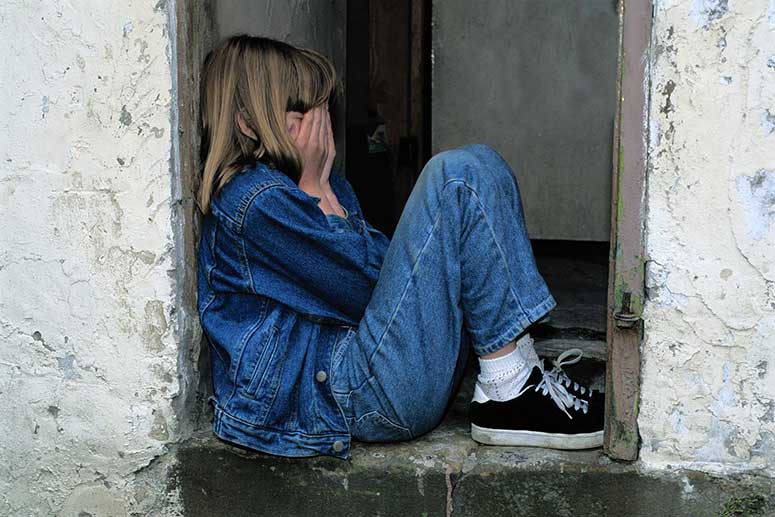Recognising and responding to coercive control and systemic entrapment
11
March
2024

This event was held on 11 March 2024 at the University of Auckland | Waipapa Taumata Rau in Auckland. Watch the recording from the event or view the slides.
About the event
In this panel, researchers and academics from Aotearoa and Australia unpack coercive control and systemic entrapment and explore how individuals, organisations and systems can better support victim-survivors. The panellists spoke about:
- Understanding the ways that victims experience coercive control and systemic entrapment including how this may be different for tangata whenua
- Learning from the Australian experience to develop a systems response to coercive control
- Understanding and challenging systemic entrapment – including findings and stories from wāhine Māori about entrapment, and exploring how to interrupt systemic entrapment and support women.
Background information
Coercive control is recognised as a harmful dynamic that characterises most interpersonal violence. It can have severe health and wellbeing consequences and it can be fatal. Yet it is still not widely understood. Coercive control refers to a cumulative pattern of abuse and violence, through which a person intimidates and threatens their partner or ex-partner in ways that make them afraid and controls their choices and behaviour. It usually includes physical violence, but not always. Through coercive control, an abusive partner can trap their partner within the relationship and isolate them from support networks. Victims can be further socially entrapped by unhelpful responses from other people, organisations and society that ignore or minimise the abuse, blame the victim, or otherwise add to the impact of the abuse. Some of the individual acts of coercive control can be subtle and difficult to recognise as abuse when they are not looked at in the context of the wider pattern of abusive and violent behaviour over time. To effectively support victim-survivors, it is essential that coercive control and systemic entrapment are more widely understood. Related resources
E Tū Wāhine, E Tū Whānau: Wāhine Māori keeping safe in unsafe relationships (2019) by Denise Wilson, Alayne Mikahere-Hall, Juanita Sherwood, Karina Cootes and Debra Jackson. Also see our related news story, Research explores Māori women's realities; finds agencies often contribute to entrapment.
Carceral feminism and coercive control: when Indigenous women aren’t seen as ideal victims, witnesses or women (2021) by Chelsea Watego, Alissa Macoun, David Singh and Elizabeth Strakosch
Understanding Intimate Partner Violence: Why Coercive Control Requires a Social and Systemic Entrapment Framework (2023) by Julia Tolmie, Rachel Smith and Denise Wilson
CALD Communities as “Collateral Damage” in the Criminalization of Coercive Control: An Argument for Prioritizing Civil System Reform Over Further Criminalization in Victoria (2023) by Balawyn Jones and Akuch Kuol Anyieth.
Australian National Principles to Address Coercive Control in Family and Domestic Violence (2023)
Social entrapment : a realistic understanding of the criminal offending of primary victims of intimate partner violence (2018) by Julia Tolmie, Rachel Smith, Jacqueline Short, Denise Wilson and Julie Sach
Coercive Control as the Context for Intimate Partner Violence: The Challenge for the Legal System (2020) by Jane Wangmann
Law Reform Processes and Criminalising Coercive Control (2022) by Jane Wangmann
Victim-survivors’ views on and expectations for the criminalisation of coercive control in Australia: Findings from a national survey (2023) by Kate Fitz-Gibbon, Ellen Reeves, Silke Meyer and Sandra Walklate at the Monash Gender and Family Violence Prevention Centre
Panellists
Denise Wilson (Tainui, Ngāti Porou ki Harataunga, Whakatōhea, Ngāti Oneone, Ngāti Tūwharetoa) is an Associate Dean of Māori Advancement and Professor of Māori Health at Auckland University of Technology. She advocates for health and social outcomes improvement for whānau Māori (Indigenous peoples of Aotearoa). Denise is a member of Te Pūkotahitanga (Māori Ministerial Advisory Group for Family Violence and Sexual Violence Prevention). Denise served on the Family Violence Death Review Committee, chaired the Family Violence Prevention Investment Advisory Board, was the Deputy Chair of the Family Violence Prevention Expert Advisory Group, and was a member of the Health Quality & Safety Commission’s Te Rōpū Māori (Māori Advisory Group).
Heather Douglas is a Professor at the Melbourne Law School, University of Melbourne and has researched legal responses to domestic and family violence for over twenty years. Since 2016 she has coordinated Australia’s National Domestic and Family Violence Bench Book, an open access online resource for judicial officers responding to cases involving family violence. In 2022, Heather received an order of Australia in the general division (AM) for her services to tertiary education and to the community.
Rachel Smith is a Lecturer in the Auckland University of Technology Violence and Trauma Studies Programme. She has worked in the family violence sector for over 20 years in the UK and Aotearoa, with roles spanning strategic positions within government and frontline management roles in non-government organisations. Rachel previously led the review of family violence deaths for the New Zealand Family Violence Death Review Committee.
Julia Tolmie is a Professor in criminal law at the University of Auckland and a fellow of the New Zealand Royal Society Te Aparangi. She has served as chair of the New Zealand Death Review Committee and on various government expert advisory groups. She was the Shirley Greenberg International Visiting Scholar at the University of Ottawa in 2016 and a distinguished visiting scholar with the Gender and Family Violence Research Program at the University of Monash in 2018.
Facilitated by:
Nicola Gavey is the Tauiwi Academic co-Director of the New Zealand Family Violence Clearinghouse and Professor of Psychology at Waipapa Taumata Rau, the University of Auckland.
Elisabeth McDonald is an independent researcher and Adjunct Professor of Law at the University of Canterbury, and contributes to the work of Te Kura Kaiwhakawā | Institute of Judicial Studies.











